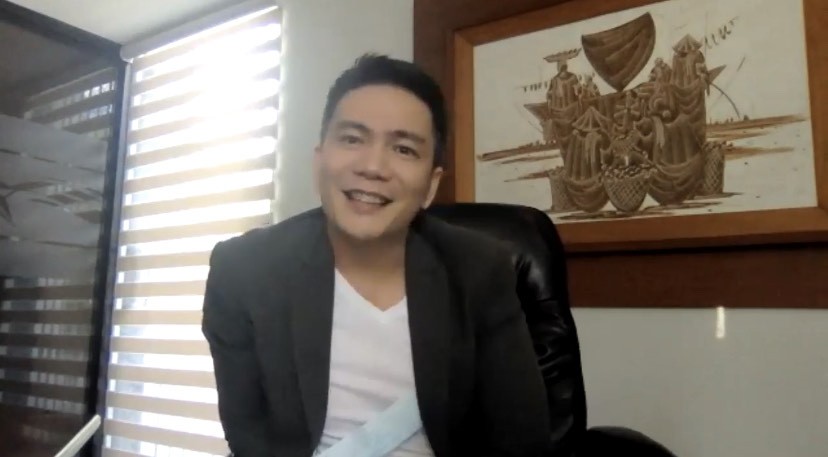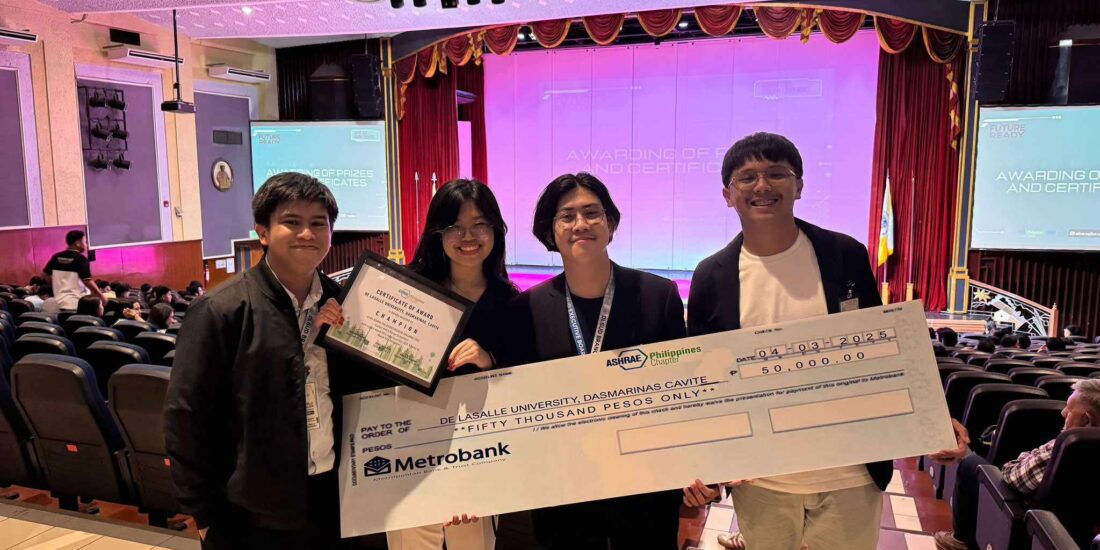DLSU-D eyes to allow limited onsite activities, use of facilities next semester
Following the approval of face-to-face classes under the Alert Level 2 in Cavite, Vice Chancellor for Academics and Research (VCAR) Dr. Marco Saez eyes to permit limited onsite activities and the use of campus facilities next semester, subject to the approval of Commission on Higher Education (CHED).
However, the earliest possible date for reopening of in-campus sessions remains slated for academic year (AY) 2022-2023, reiterating the announcement on the extension of online classes on November 5 that aims to give parents and students time for adjustments.
Limited onsite activities
In an online interview via Zoom on November 19, Saez said they are currently working on a learning continuity plan, which presents the matrix of activities to be allowed under different alert levels.
As of November 16, there have been two drafts of the continuity plan, with the latest aiming to permit certain onsite activities under Alert level systems one to three. These activities may include but are not limited to: field work, practicum, consultations, defense, and laboratory works — but only as supplementary and optional under all degree programs.
This is in consideration for students residing outside the province and the country, as they cannot immediately adapt to the shift to onsite classes.
On the other hand, should the alert level systems be raised from four to five, activities may be limited to purely online setup.

Draft courtesy of Vice Chancellor for Academics and Research (VCAR) Marco Saez
Meanwhile, Saez reiterated that the learning continuity plan is still subject to change in consideration of the upcoming multisectoral meeting with student representatives, faculty organization, and the Parents Organization La Salle Cavite (POLCA) to be held on November 22. The plan is eyed to be finished by December, and be submitted for CHED’s approval by the last week of January.
Campus facilities, University preparations
Aside from possibly allowing face-to-face activities next semester, Saez also shared that plans on permitting the usage of campus facilities are now under works. “We (the administration) are now talking about how we could reopen the school for facility use. We are also talking about how it (classes) could be supplemental,”he stated.
Considering the challenges brought by the pandemic, VCAR plans for the earliest possibility for the reopening of the University library, laboratories, and even computer rooms, which is by the second semester at most.
Moreover, Saez said that visitor flow concerning facility use would be easy to handle upon implementation of an online reservation mechanism that controls the number of visitors and the number hours they need to stay within the campus.
However, despite the given time for preparations on reopening the campus, Saez still reminded that “we are not exempted from satisfying the documentary requirements when we apply, even for facilities use […] But again we need to retrofit. We need to come up how our facilities are ready”.
In terms of other initiatives being undertaken, Saez listed other preparations needed to be accomplished for both students and the University such as getting a required student insurance coverage that would result in tuition fee increase, as well as planning and posting of schedules for changes on tuition fees.
“We don’t want to thread that path na we’re going to increase [the tuition fee] because of these requirements. Kaya we want to make it as flexible as possible,”said Saez.
On graduating students
As many graduating students appeal for the resumption of onsite classes, the Vice Chancellor also disclosed some plans on internship and graduation for fourth year students.
According to Saez, onsite internship or on-the-job training (OJT) for current fourth year students would be open in line with the learning continuity draft under Alert Level 2 — the current alert level implemented in Cavite.
However, there are no specific guidelines for face-to-face internship for all degree programs from CHED as of press time. But referencing the commission’s guidelines regarding practicum activities for Bachelor of Science (BS) Hotel and Restaurant Management (HRM) and BS Tourism Management (BTM) — one of the first programs that was allowed to hold onsite OJT, Saez emphasized that part of the conditions would be the requirement for chosen companies to satisfy government regulations on health and safety.
VCAR added that vaccination for students will also be required for students who want to undertake an onsite internship.
“DLSU-D is open with that (OJT and practicum activities) as long as they (partner companies) satisfy yung mga regulations,” he said.
Meanwhile, plans and preparations on graduation for Batch 2022 are also being undertaken in response to clamors for onsite commencement exercises from the graduating batch.
“The Chancellor is encouraging us to work on it […] It will take a longer preparations pero we are open to it,” VCAR said.
This is a developing story.
Slider taken on November 9 in an online interview via Zoom.





Marco Saez
Thanks HF. We’ll give you updates after our Nov 2022 meeting. Hopefully all the feedback requested will be ready. As of this time, POLCA has submitted its feedback
Edwin
A lot of schools are already planning for limited f2c, some have already have plans as early as Dec this year. I don’t undenstand DLSU-D’s insistence on starting f2f by next school year. There are things that can be done to do f2f in a safe manner. Even primary schools now have limited f2f schedules.